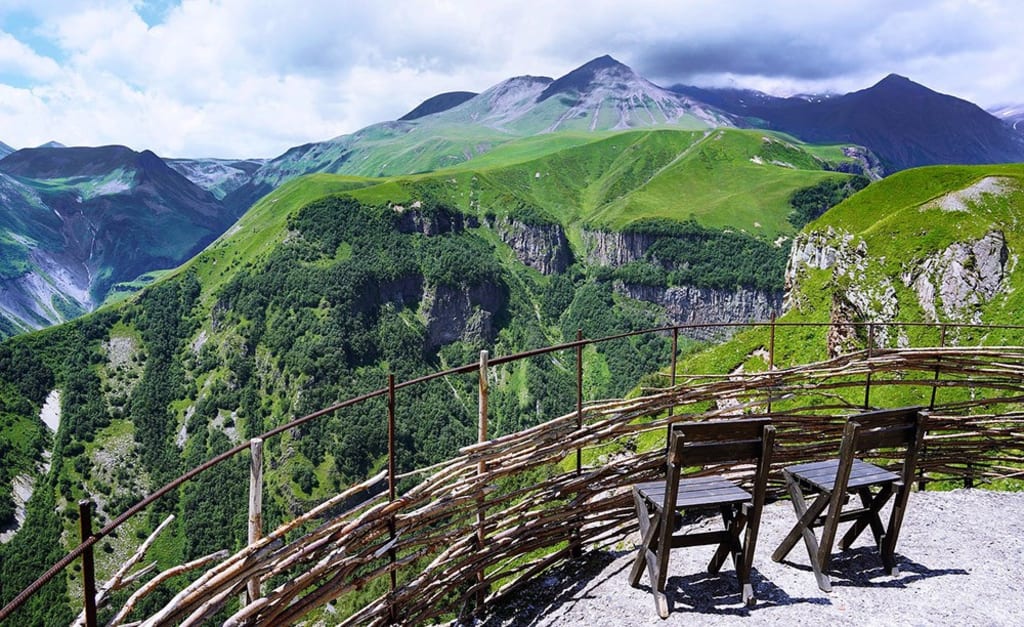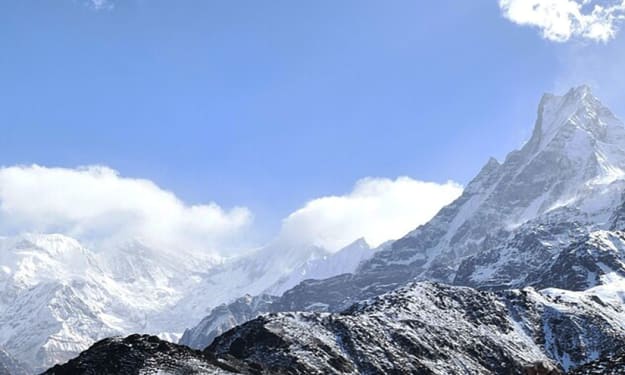Ultimate Guide to South Caucasus - What you need to know
Georgia, Armenia and Azerbaijan, three destinations to think of

While gaining traction on the international tourism arena, the South Caucasus Region is still a relatively unknown destination to the majority of travelers around the world. Asking a random person on the street to pinpoint Georgia on the map is likely to end up in them pointing somewhere near Atlanta, while the majority will simply shrug when you ask them where Armenia is located, unless you’re doing it in Los Angeles that is.
This, however, is slowly changing, and steadily the inflow of tourists in the south Caucasus is gaining traction, being fueled by many leading traveling websites featuring articles that promote the hidden gems for travelers in this secluded region of the world. Local governments have also been striving to make the region far more attractive and accessible for tourists from Europe and Asia, with airports in Kutaisi and Gyumri offering budget flights from Europe, and Tbilisi and Yerevan airports seeing significant expansion to accommodate greater numbers of flights.
In many ways, South Caucasus is the unexplored frontier of tourism for many eager travelers from Europe and Asia, conveniently located right at their doorstep, adding to the appeal of visiting this unique region. Being an incredibly diverse and vibrant place, Three tiny nations of South Caucasus, those being Georgian, Armenia and Azerbaijan, have a lot to offer to any foreign visitors looking for new experiences, promising an unforgettable adventure for everyone.
If you are not convinced to pack your things and plan your flight to Tbilisi yet, the following guide will shed light on the key aspects of the South Caucasus region, highlighting the unique nature of this region, its vibrant history, colorful and diverse culture, and politics so dynamic it would put Game of Thrones to shame.
Diversity
Thinking of the South Caucasus, one might assume that small nations of Georgia, Armenia, and Azerbaijan located there should be quite similar to each other. This assumption could not be further from the truth though, with three neighboring countries being as different from each other as possible, with each having their unique culture, religion and distinctive languages.
Georgia and Armenia, being the long-running neighbors in the region, share centuries-old relations and cultural ties. While retaining their individual cultures in a very unique way, the interrelation between the two is apparent, and it is not uncommon to see people of Armenian descent that have lived in Tbilisi for a number of generations now.
Azerbaijan, being the only Muslim-majority nation in the region, can be viewed a bit more distinctively from its neighbors, having aspects of Turkic and Iranian cultures intermixed in its own, unique one.
It's not just Georgian, Armenians and Azerbaijanis residing here, however. Ethnic diversity is something that the region can definitely boast with, with hundreds of ethnic minorities living in each state, each with their own respective cultures and languages, providing linguistic diversity seen nowhere in the world. Russian, Ukrainian, Greek, Ossetian, Jewish, Abkhaz, Dagestani, Kurdish and even Assyrian can be heard in every corner of South Caucasus, with Georgia having the most diversity out of three countries.
Being nestled on the crossroads of Asia and Europe, still struggling to determine where exactly does South Caucasus lay, the region boasts an incredible diversity of flora and fauna, having 9 out of 11 climatic zones located within it, with landscapes varying from snowy mountain ranges, semi-arid deserts, lush green forests, open grass steppes, and sunny sand beaches, it has more than enough variety to offer, being like a mini-continent of its own.
Anyone planning a trip to south Caucasus needs to account for this diversity, in order to get the full taste of what the region truly has to offer. Visiting all three nations will produce vastly different experiences, in every imaginable way. Skipping a trip to Armenia because you’ve already seen a good portion Georgia will not do you any good, and you will most certainly miss out on an opportunity for unique experiences, so make sure to plan accordingly to truly taste what the region has to offer.
Food, wine, and hospitality
Ask any person who has ever visited South Caucasus on the most memorable part of their trip, and chances are that cuisine will be the chief among them. The region is well renowned for the variety of food, its incredible flavor, and sizable portions. The local cuisine caters to any tastes imaginable, with spicy Azerbaijani kebab, savory Armenian dolma, or filling Georgian khinkali, it's tough to try out every dish offered on a single trip. And if the meat isn’t your thing, Georgians have you covered with incredible vegetarian dishes such as vegetable-based paste-like pkhali, or a great variety of cheese-filled khachapuris, that have been gaining popularity far beyond the borders of Georgia.
And speaking about Georgia, any wine enthusiasts should be thrilled to visit the birthplace of wine, which offers a mind-boggling variety of different sorts of red and white wines, each made with unique, centuries-old techniques, many of which have witnessed rebirth after decades of being forgotten.
All of this, complemented with the deep-rooted tradition of hospitality in the region, stretching back to antiquity, with the ancient Greek legend of Argonauts and the Golden Fleece illustrating the importance of hospitality for the people of Caucasus.
On the crossroads
The aforementioned question of where does South Caucasus lay, in Europe or in Asia, has played a significant role in determining the identity of each nation. Throughout history the region was influenced by various cultures that have swept through, each living their distinctive marks on it. Since gaining independence in 1991, each nation has started forging its own identity determined from the new political reality they have found themselves in, following the dissolution of the Soviet Union.
While geographically located in Asia, each has strived to connect and identify with Europe to varying degrees, in an effort to rekindle close historic ties with Europe that the nations had throughout the 20th century. Georgia is definitely the leading nation in the context, who has positioned its identity and values to be closely aligned with the European ones, forging close ties with the European Union, including visa-free travel. Today, Georgia wholeheartedly strives for full membership of the EU, with the words of the Georgian politician, Zurab Jvania, resonating with every Georgian - “I am Georgian, and therefore I am European”.
This strive for Europeanism is primarily evident in larger cities, where classical architecture, city layout, wide boulevards, and decorated fountains create a sense of walking down in a European city, with unique local cultural aspects seemingly intermixed here and there.
History of struggle
Being on the crossroad of continents also brought upon a turbulent history for the region, with larger empires constantly striving to gain control of the key region throughout the ages. South Caucasus has been a battleground for larger nations throughout the memory of the people, with Romans, Parthians, Byzantines, Sassanids, Arabs, Ottomans and Russians fighting for dominance in this region. This has left a deep scar in the consciousness of people residing in South Caucasus, whose history is characterized by constant invasions and wars of independence.
The turbulent history is spilling over into modernity as well, with the region having three unresolved conflict areas dotted around, those being South Ossetia, Abkhazia, and Nagorno-Karabakh. The latter conflict is between Armenia and Azerbaijan, and the political animosity between the two has resulted in them effectively cutting any relations they once had, and the border between them is completely closed. Georgia acts as the neutral nation among the three, and Azerbaijani and Armenians are often living peacefully side by side there, leaving a shimmer of hope that the conflict will be resolved one day.
The historic conflict has played an important role in forging the identity of the residents of the South Caucasus, which can be characterized as fiercely independent and autonomous, and despite all the struggles, they retained a good spirit of hospitality and friendliness, gazing into the future with optimism and hope.
Bright Future
The visit to the south Caucasus is surely to leave memories of a lifetime for any visitors aiming to go there, and with the growing influx of tourists to the region, the warm and hospitable people of the region are ready to meet them with open arms and genuine smiles. The growing tourism industry promises a bright future for the three nations and is sure to bring positive change in the life of many residents of this unique and vibrant region of the world.






Comments
There are no comments for this story
Be the first to respond and start the conversation.